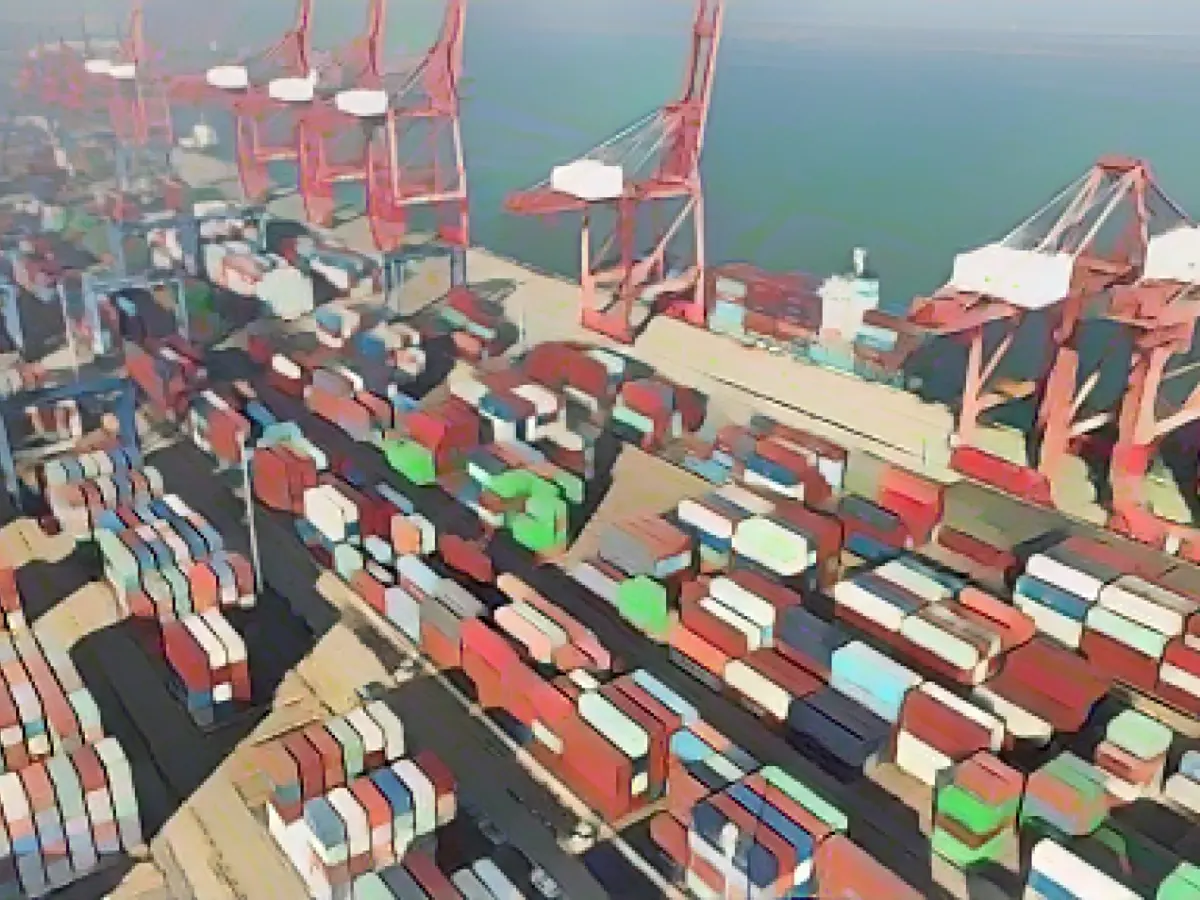Foreign trade - Chamber of Commerce: Level playing field for EU in China
The German Chamber of Foreign Trade (AHK) has called for fairer competitive conditions on the Chinese market for European companies ahead of the EU-China summit. Jens Hildebrandt, Managing Director of the AHK, said in Beijing that the issue must be back at the top of the agenda. "We must no longer allow European companies in China not to encounter the same competitive conditions as the Chinese economy in some areas, while Chinese companies can fully exploit the European market," he explained.
Access to the Chinese market for foreign companies has been an issue for years. According to Hildebrandt, the EU representatives should address access barriers such as licensing or informal agreements when awarding public contracts. EU Council President Charles Michel and Commission President Ursula von der Leyen will meet China's head of state and party leader Xi Jinping in Beijing on Thursday. According to EU officials, topics will include the global political situation and economic issues. The EU is China's most important trading partner. According to the AHK, Germany dominates European-Chinese trade with a 46 percent share of exports among EU countries.
Companies react to risks in China
The summit will also discuss Brussels' plan to become less dependent on China. According to Hildebrandt, the EU should make it clear in which areas so-called de-risking is being considered. These measures are also necessary. "We hope, however, that no trade conflicts are provoked, because the German economy needs open markets," said Hildebrandt.
Due to political tensions and China's economic situation, some German companies are reducing the risk associated with their business in China, according to an AHK survey. 44 percent of 566 respondents stated that their company headquarters are taking such steps. Slightly more companies (45 percent) denied this. The remainder answered "don't know". For example, companies are relying on supply chains that are independent of China or are building up additional business in other countries.
What is important, however, is that 54% of companies want to expand their investments in China, explained Hildebrandt - also a form of risk management, so to speak. The majority of these companies justified their plan by wanting to remain competitive in China. For example, some are localizing their research and development in China.
Read also:
- Jens Hildebrandt, the Managing Director of the AHK, stressed the importance of equal competitive conditions for European companies in China during the EU-China summit in Beijing.
- The EU-China summit in Beijing will focus on addressing barriers to the Chinese market for foreign companies, such as licensing and informal agreements in public contracts, according to EU representatives.
- A survey conducted by the AHK revealed that due to political tensions and China's economic situation, some German companies are reducing the risk associated with their business in China by relying on independent supply chains or building up additional business in other countries.
- Hildebrandt also highlighted that despite the risks, 54% of companies surveyed by the AHK intend to expand their investments in China as a form of risk management and to remain competitive in the Chinese market.
- The EU is China's most important trading partner, with Germany dominating European-Chinese trade with a 46% share of exports among EU countries, according to the AHK.
- Hildebrandt urged the EU to make it clear in which areas so-called de-risking measures are being considered in response to political tensions and China's economic situation, while also hoping to avoid trade conflicts that could harm the German economy's need for open markets.
- The EU-China summit will cover topics such as the global political situation and economic issues, with EU Council President Charles Michel and Commission President Ursula von der Leyen meeting China's head of state and party leader Xi Jinping in Beijing.
- The German Chamber of Foreign Trade (AHK) advocated for fairer competitive conditions on the Chinese market for European companies ahead of the EU-China summit, calling for the issue to be a top priority on the agenda.
Source: www.stern.de








